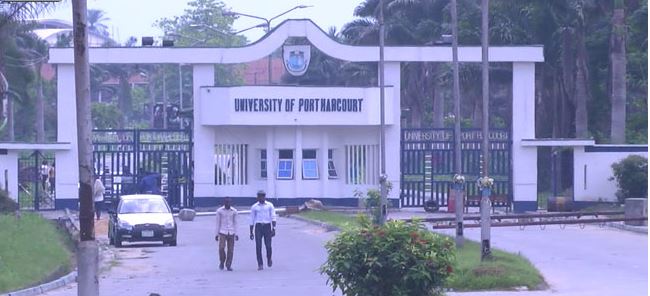By John Moses
The University of Port Harcourt (UNIPORT) is set to confer degrees on nearly 15,000 graduates during its 35th convocation ceremony, marking a major milestone as the institution celebrates its 50th anniversary.
Vice-Chancellor Professor Owunari Georgewill made the announcement at a press briefing in Port Harcourt, stating that a total of 14,861 graduands will receive various qualifications spanning undergraduate and postgraduate programmes.
Among them, 9,788 will receive first degrees, with 363 achieving first class honours, while 5,073 others will be awarded postgraduate qualifications, including Master’s and PhDs.
The week-long convocation, scheduled to run from 21 to 26 July, will celebrate students from the 2021/2022 and 2022/2023 academic sessions.
In addition to the graduating students, four prominent Nigerians will be honoured with honorary doctorate degrees: Nigeria’s First Lady, Senator Oluremi Tinubu; FCT Minister, Nyesom Wike; TETFund Chairman, Aminu Masari; and Governor Umaru Fintiri of Adamawa State.
Describing the ceremony as a “symbolic season of harvest,” Prof. Georgewill highlighted the university’s strides in academic excellence, infrastructure, and research, noting that UNIPORT had secured major investments in campus development through the TETFund, Federal Government needs assessments, and capital projects.
These investments have led to upgraded laboratories, a new convocation arena, modern classrooms, healthcare facilities, and sports infrastructure.
A key development, he noted, is the ongoing construction of a 10.7MW solar hybrid power plant, in partnership with the Rural Electrification Agency (REA). Once completed, the facility will provide uninterrupted power to the university, its teaching hospital, and surrounding communities.
The Vice-Chancellor also announced the creation of three new faculties: Computing, Allied Health Sciences, and Media & Communication, as part of efforts to align the university with emerging global trends.
UNIPORT, he said, is increasingly becoming a hub for international research, hosting two World Bank-funded Africa Centres of Excellence—in Public Health & Toxicology (ACE-PUTOR) and Oilfield Chemicals Research (ACE-CEFOR).
To improve digital access, the university is moving towards full digitalisation, with plans for smart classrooms, virtual labs, and cloud-based academic resources already underway.
Despite these strides, Georgewill raised concerns over land encroachment and called for increased funding for critical infrastructure such as student housing, staff quarters, road networks, and administrative buildings.




















